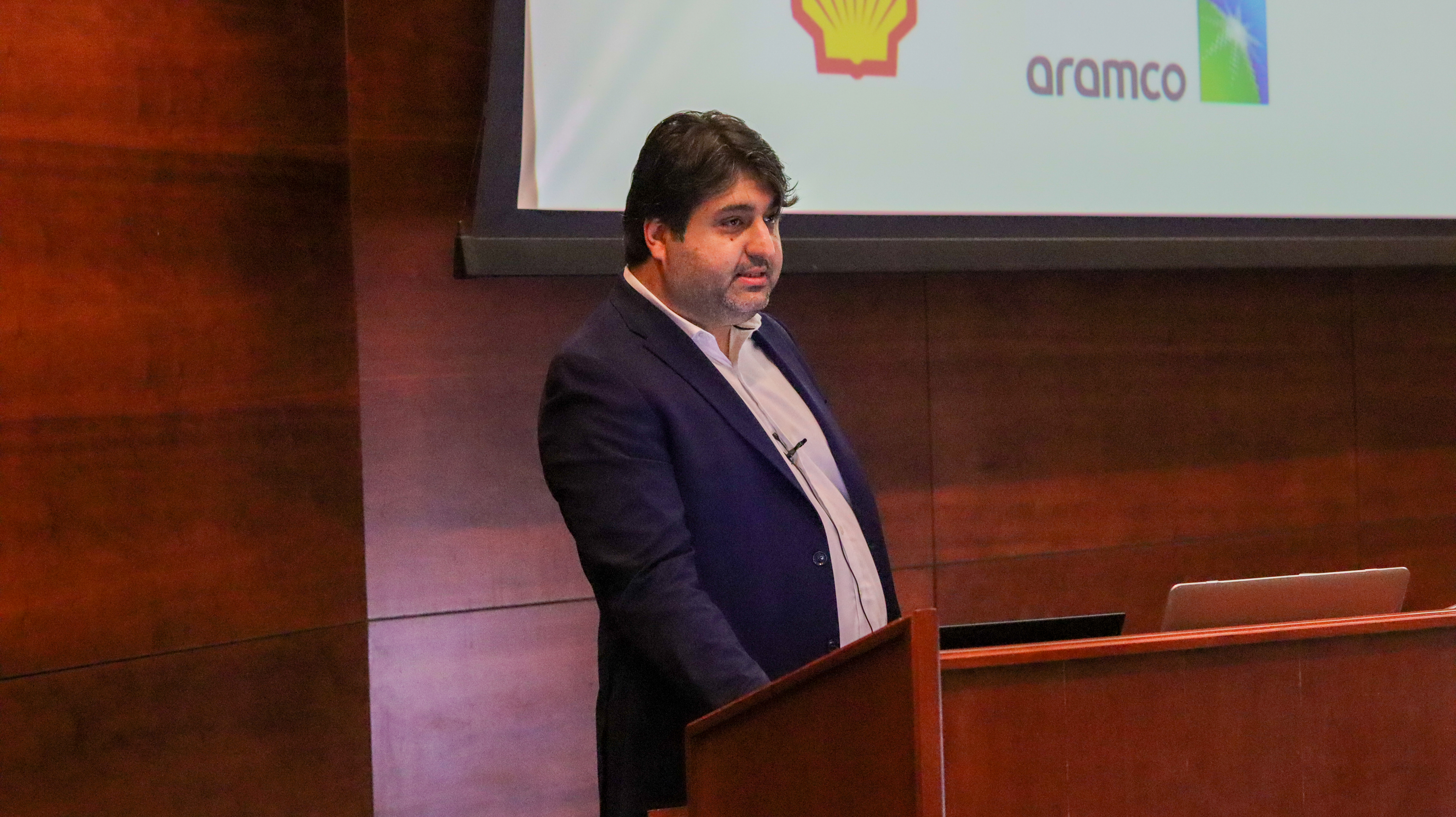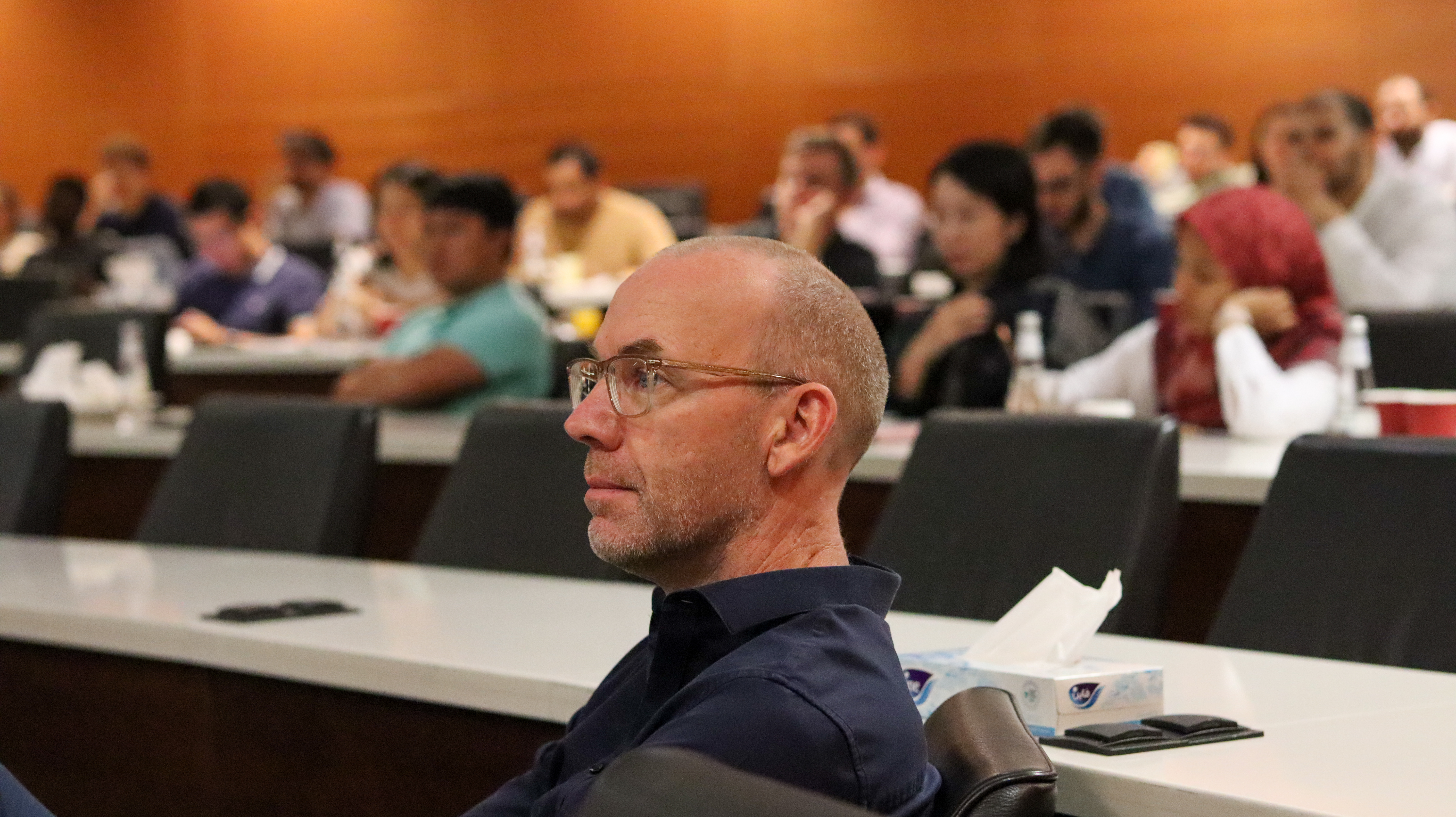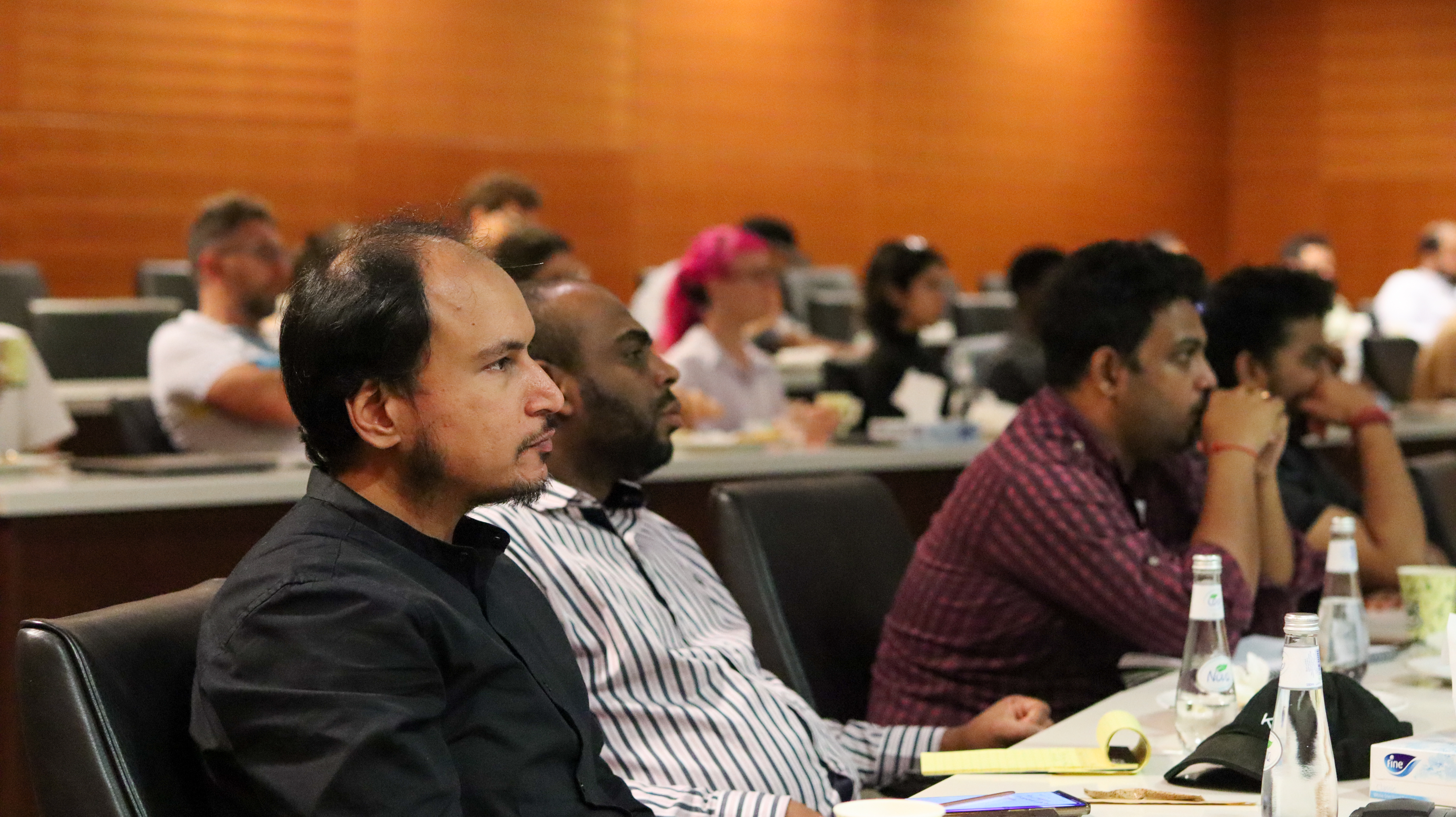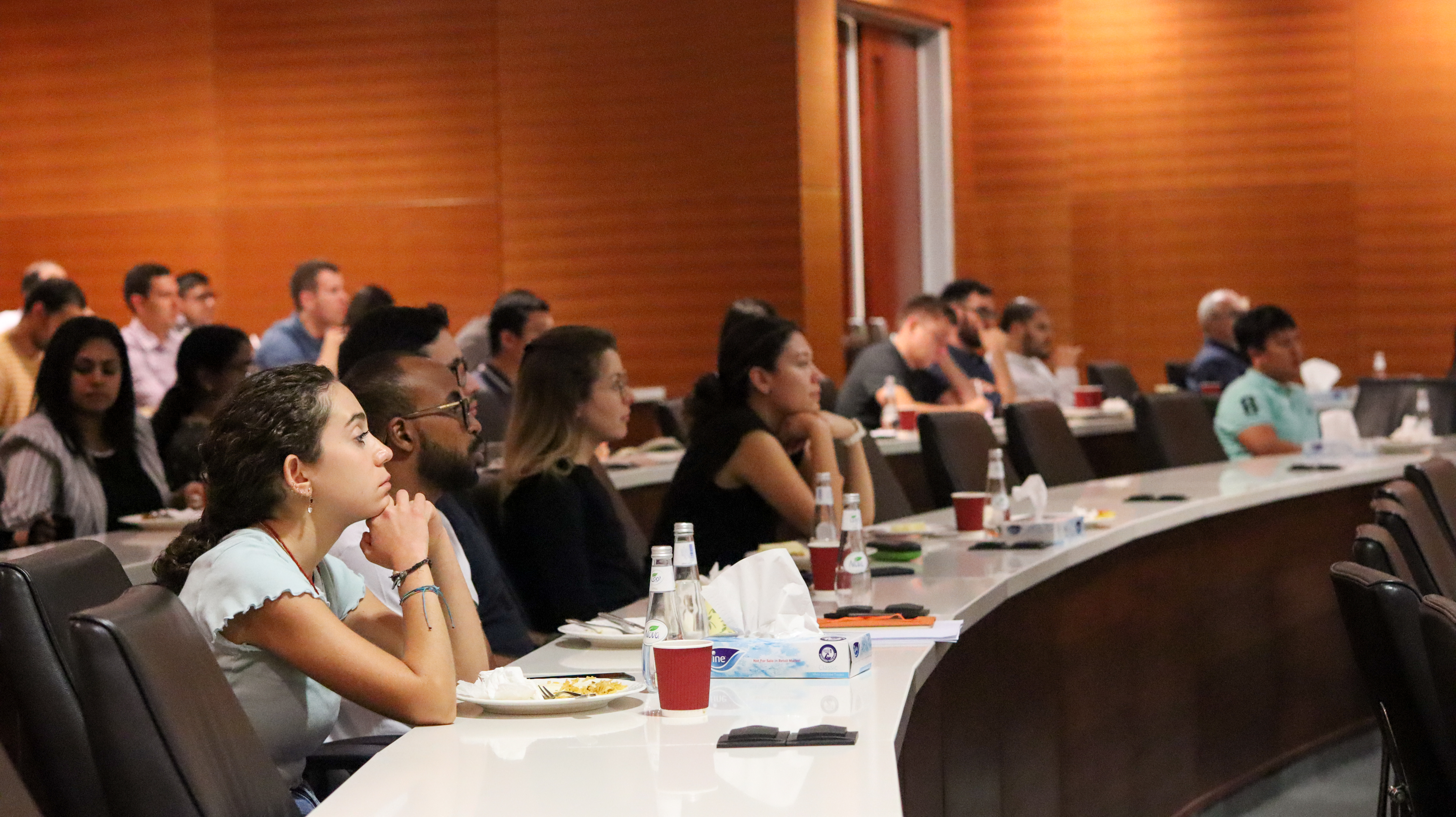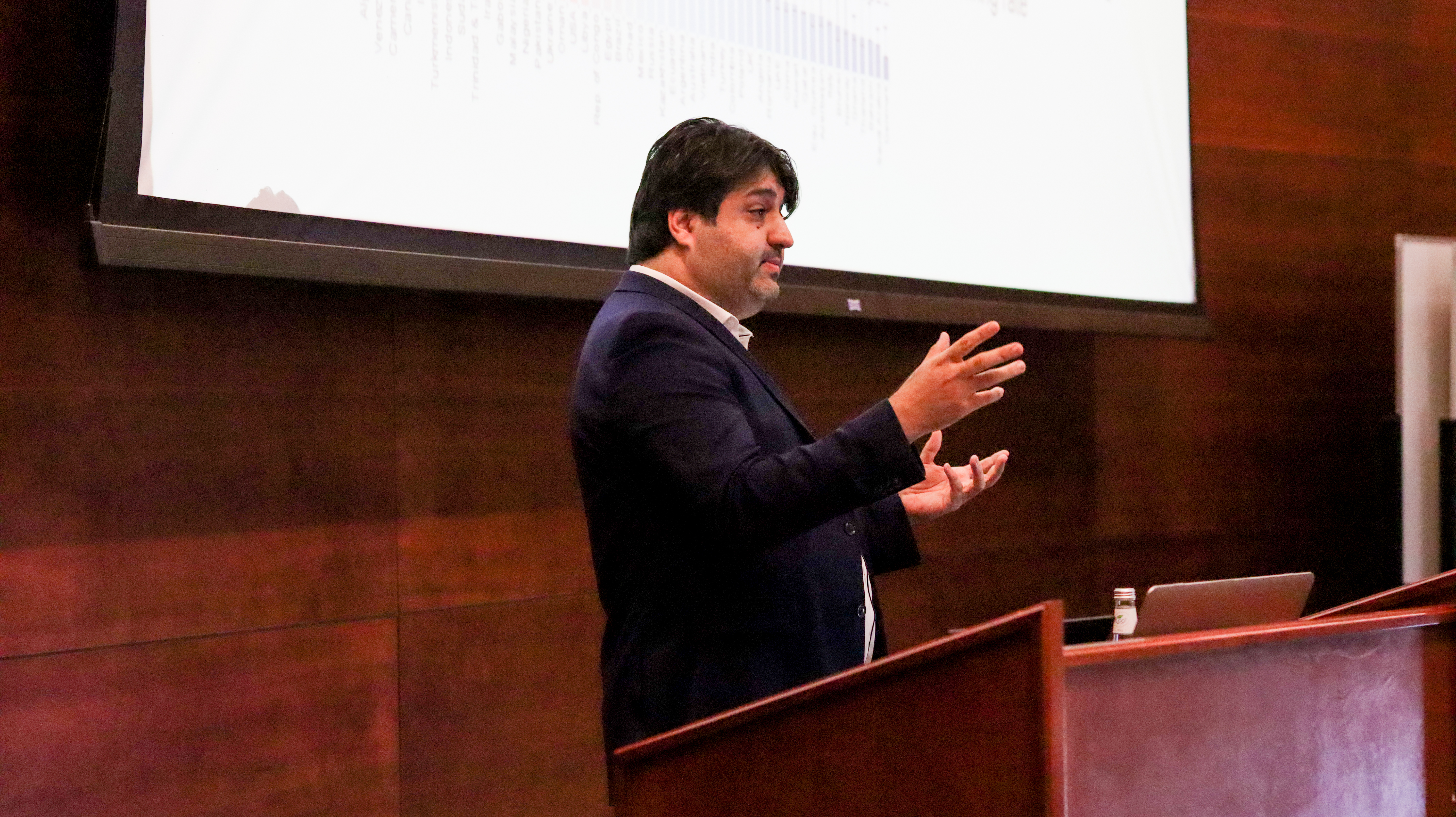.jpg?sfvrsn=39330263_0)
.jpg?sfvrsn=39330263_0)
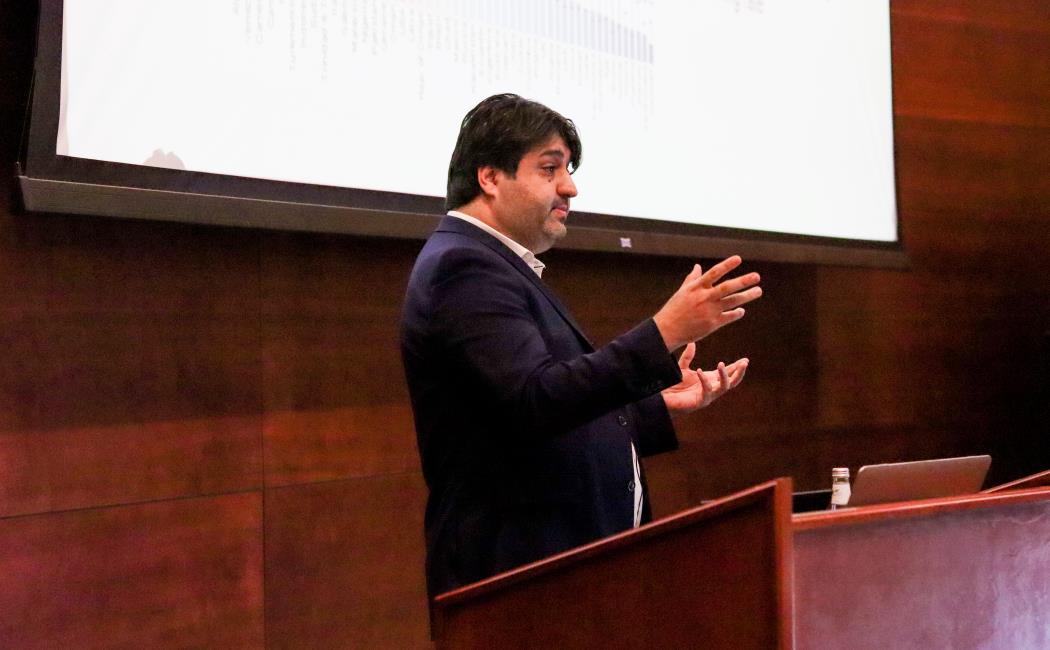
29 September, 2022
On the 29th of September, Dr. Hassan M. El-Houjeiri, Head of Energy Traceability Technology, Saudi Aramco presented a seminar entitled: “The power of science in shaping climate policy and investment decisions” to all ANPERC members.
Dr. El-Houjeiri is currently leading a division at Aramco for the mapping and life cycle analysis of global oil and gas supply chains. He supported the development of the corporate climate strategy and developed a life cycle analysis practice. He also leads the Kingdom's technical team at the International Civil Aviation Organization (ICAO) to define and implement jet fuel climate policy. Before joining Aramco, Dr. El-Houjeiri developed policy mechanisms and platforms for state regulators in the United States for crude oil carbon intensity provisions. He built the Oil Production Greenhouse Gas Emissions Estimator (OPGEE) model, which major regulators use for oil and gas carbon intensity assessments. Extensive experience at Shell assessing GHG emissions of oil and gas developments and shaping carbon strategy. Dr. El-Houjeiri has a Ph.D. in Engineering Science from Oxford University and a Postdoc in Energy Resources Engineering from Stanford University.
Read the seminar abstract below:
A decade ago, life cycle analysis (LCA) of oil and gas resources had little impact on policymaking. All oil is created equal was the general assumption in climate assessments. The growth of oil sands in Canada, and the US shale boom sparked interest in understanding the fundamental differences in the carbon intensity of crude oil production globally. In 2012, I worked with Professor Adam Brandt at Stanford University to build the Oil Production Greenhouse Gas Emissions Estimator (OPGEE), an open-source LCA tool that uses petroleum engineering principles to calculate the carbon intensity of oil and gas production on a field level. Since then, I have spearheaded international collaborations to advance the development of open-source LCA models and datasets to allow the carbon intensity and economic assessment of the entire global oil and gas resources. This extensive research was co-published with 50 scientists and 28 institutions in prestigious journals: Science, Nature, Nature Energy, Nature Climate Change, and Nature Communications. At Aramco, we developed a web-based interactive tool that maps the entire global oil infrastructure and estimates the product carbon intensities across different oil supply chains. This tool, namely Aramco Carbon-emissions High-resolution Inventory Estimator (ARCHIE), was instrumental in bringing our research to the broader non-technical audience and developing international climate policy. Integrating LCA results across the entire oil supply chain presents unprecedented sustainability insights that are highly valuable to stakeholders. Policymakers can regulate petroleum products in different global markets, producers can devise decarbonization strategies, refiners can make climate-conscious crude choices, and customers can choose to pay a premium for lower-carbon petroleum fuels. Scientific LCA is now instrumental in guiding the climate debate and drafting a path for the future role of hydrocarbons in a carbon-constrained world.
